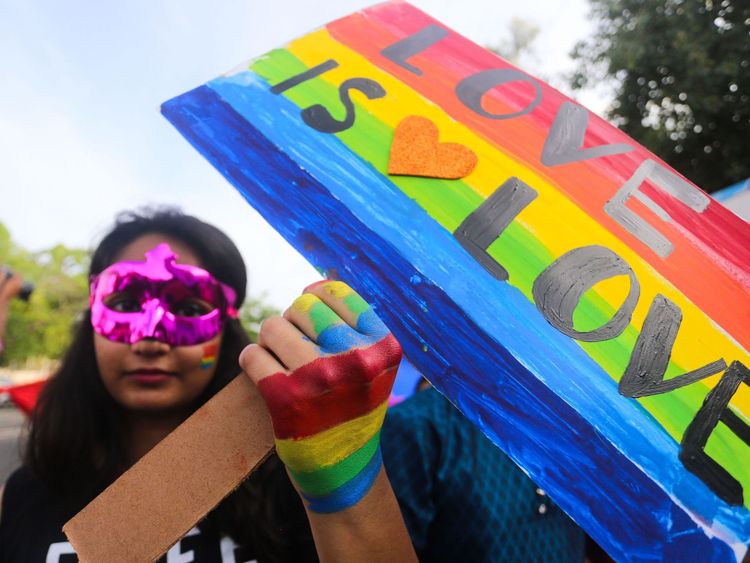India’s top court has reversed a law from the colonial era that made gay sex punishable by up to 10 years in jail.
Five people had challenged the law, saying they lived in fear of being harassed by police.
A law known as Section 377, enacted by British rulers in 1861, was widely interpreted as referring to homosexual sex.
It prohibited “carnal intercourse against the order of nature with any man, woman or animal”.
Many people consider gay sex to be taboo in socially conservative India.
Five judges sitting at the country’s Supreme Court were unanimous in overturning the ban, which was reinstated in 2013 after four years of decriminalisation following an appeal by religious groups.
Delivering the judgement, India’s chief justice, Dipak Misra, said: “Any consensual sexual relationship between two consenting adults – homosexuals, heterosexuals or lesbians – cannot be said to be unconstitutional.”
The law had become a “weapon for harassment for the LGBT community”, he added.
One of those who challenged the law, Akhilesh Godi, said it was “not only about decriminalising, but recognising our fundamental rights”.
People who fought for a change in the law had braved the “worst sort of prejudice”, said Meenakshi Ganguly from Human Rights Watch.
Members of the LGBT community cried and hugged each other as news of the verdict reached them.
College student Rama Vij, wearing a rainbow scarf, said: “I am speechless.
“It’s taken a long time to come but finally I can say I am free and I have equal rights as others.”
In 2016, 2,187 cases were registered under Section 377 under the category of “unnatural offences”.
Seven people were convicted and 16 acquitted.
From – SkyNews


